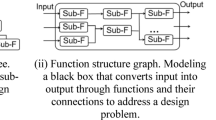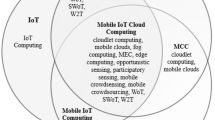Abstract
In this paper, we propose a new model for mixed-criticality systems (MCS) that can adapt to system overload scenarios due to the occurrence of two known phenomena. First, budget overrun of tasks due to their imprecise budget estimations which is a common theme in most existing studies related to MCS. Second, a spike in the resource consumption pattern leads to a temporary system overload when tasks belonging to different modes execute together for a certain time interval when the system switches from one mode to another. Such a phenomenon is also a common theme for designing safety-critical embedded systems capable of operating in multiple functional modes. The multi-mode mixed-criticality system (MM-MCS) model, proposed in this paper, considers task degradation and offsets to handle the system overload. We derive a sufficient t schedulability test under a fixed-priority scheduling scheme for the MM-MCS model and present an algorithm to determine offset values for tasks with an objective to minimize the offsets for higher criticality tasks. Experimental results with synthetic task sets show that task degradation and offsets are an effective means to handle system overload both within a mode and across mode transitions. Further, an algorithm to derive offsets for tasks based on their criticality is presented. It clearly shows that the criticality of tasks can play an important role not only in deciding on the task degradation but also in determining offset values for tasks.













Similar content being viewed by others
Notes
For a given mode x, utilization here is computed from the safe budget \(C_{i,x}^s\) values only.
References
Alexandre E, Nelissen V, Tovar E (2015) How realistic is the mixed-criticality real-time system model? In: 23rd international conference on real time and networks systems, ser. RTNS ’15. ACM, pp 139–148
Baruah S, Vestal S (2008) Schedulability analysis of sporadic tasks with multiple criticality specifications. In: ECRTS
Baruah S, Li H, Stougie L (2010) Towards the design of certifiable mixed-criticality systems. In: RTAS
Baruah SK, Burns A, Davis RI (2011) Response-time analysis for mixed criticality systems. In: RTSS ’11
Bini E, Buttazzo G (2005) Measuring the performance of schedulability tests. Real-Time Syst 30:129–154
Bletsas K, Awan A, Souto P, Akesson B, Burns A, Tovar E (2018) Decoupling criticality and importance in mixed-criticality scheduling
Burns A, Baruah S (2013) Towards a more practical model for mixed criticality systems. In: WMC
Burns A, Davis RI (2017) A survey of research into mixed criticality systems. ACM Comput Surv 50(6)
Chen G, Guan N, Hu B, Yi W (2018) Edf-vd scheduling of flexible mixed-criticality system with multiple-shot transitions. In: IEEE TCAD, vol 37
Chwa HS, Shin KG, Baek H, Lee J (2018) Physical-state-aware dynamic slack management for mixed-criticality systems. In: IEEE real-time and embedded technology and applications symposium (RTAS), pp 129–139
Davis RI, Burns A (2011) Improved priority assignment for global fixed priority pre-emptive scheduling in multiprocessor real-time systems. Real-Time Syst 47(1):1–40
de Niz D, Phan LTX (2014) Partitioned scheduling of multi-modal mixed-criticality real-time systems on multiprocessor platforms. In: IEEE 19th real-time and embedded technology and applications symposium (RTAS), pp 111–122
De Niz D, Lakshmanan K, Rajkumar R (2009) On the scheduling of mixed-criticality real-time task sets. In: RTSS
Ekberg P, Yi W (2016) Schedulability analysis of a graph-based task model for mixed-criticality systems. Real-Time Syst 52(1):1–37
Emberson P, Stafford R, Davis R (2010) Techniques for the synthesis of multiprocessor tasksets. In: WATERS workshop at the Euromicro conference on real-time systems, pp 6–11
Ernst R, Natale MD (2016) Mixed criticality systems; a history of misconceptions? IEEE Design Test 33(5):65–74
Fleming T, Burns A (2014) Incorporating the notion of importance into mixed criticality systems. In: WMC
Gu X, Easwaran A, Phan KM, Shin I (2015) Resource efficient isolation mechanisms in mixed-criticality scheduling. In: ECRTS
Holzknecht S, Biebl E, Michel H-U (2009) Graceful degradation for driver assistance systems. In: Advanced microsystems for automotive applications. Springer, Berlin, pp 255–265
Huang P, Kumar P, Stoimenov N, Thiele L (2013) Interference constraint graph; a new specification for mixed-criticality systems. In: ETFA
ISO 26262 (2011) Road vehicle safety; part 1 to 9
Jan M, Zaourar L, Pitel M (2013) Maximizing the execution rate of low-criticality tasks in mixed criticality system. In: WMC
Leung JY-T, Whitehead J (1982) On the complexity of fixed-priority scheduling of periodic, real-time tasks. Perform Eval 2(4):237–250
Niellson G (2018) Invited talk: mixed criticality systems, what is it really? In: WMC
Ordinez L, Donari D, Santos R, Orozco J (2011) Time is not enough: dealing with behavior in real-time systems. JUCS J Univ Comput Sci 17:1572–1604
Pathan R (2017) Improving the quality-of-service for scheduling mixed-criticality systems on multiprocessors. In: ECRTS
Pedro P (1999) Schedulability of mode changes in flexible real-time distributed systems. Ph.D. dissertation, University of York
Real J (2000) Mode change protocols for real-time systems. Ph.D. dissertation, University of York
Real J, Crespo A (2004) Mode change protocols for real-time systems: a survey and a new proposal. Real-Time Syst 26(2):161–197
Ren J, Phan LTX (2015) Mixed-criticality scheduling on multiprocessors using task grouping. In: 27th ECRTS, pp 25–34
Sha L, Rajkumar R, Lehoczky J, Ramamritham K (1996) Mode change protocols for priority-driven preemptive scheduling. Real-Time Syst 1:10
Sundar VK, Easwaran A (2019) A practical degradation model for mixed-criticality systems. In: IEEE 22nd international symposium on real-time distributed computing (ISORC), pp 171–180
Su H, Zhu D (2013) An elastic mixed-criticality task model and its scheduling algorithm
Tindell KW, Burns A, Wellings AJ (1992) Mode changes in priority preemptively scheduled systems. In: Proceedings real-time systems symposium, pp 100–109
Funding
Funding was provided by National Research Foundation Singapore (Grant numbers: Tier-1 grant RG21/13 and Tier-2 grant ARC9/14).
Author information
Authors and Affiliations
Corresponding author
Additional information
Publisher's Note
Springer Nature remains neutral with regard to jurisdictional claims in published maps and institutional affiliations.
Rights and permissions
Springer Nature or its licensor holds exclusive rights to this article under a publishing agreement with the author(s) or other rightsholder(s); author self-archiving of the accepted manuscript version of this article is solely governed by the terms of such publishing agreement and applicable law.
About this article
Cite this article
Sundar, V.K., Ramanathan, S. & Easwaran, A. Design and analyses of functional mode changes for mixed-criticality systems. Real-Time Syst 59, 69–121 (2023). https://doi.org/10.1007/s11241-022-09389-4
Accepted:
Published:
Issue Date:
DOI: https://doi.org/10.1007/s11241-022-09389-4




